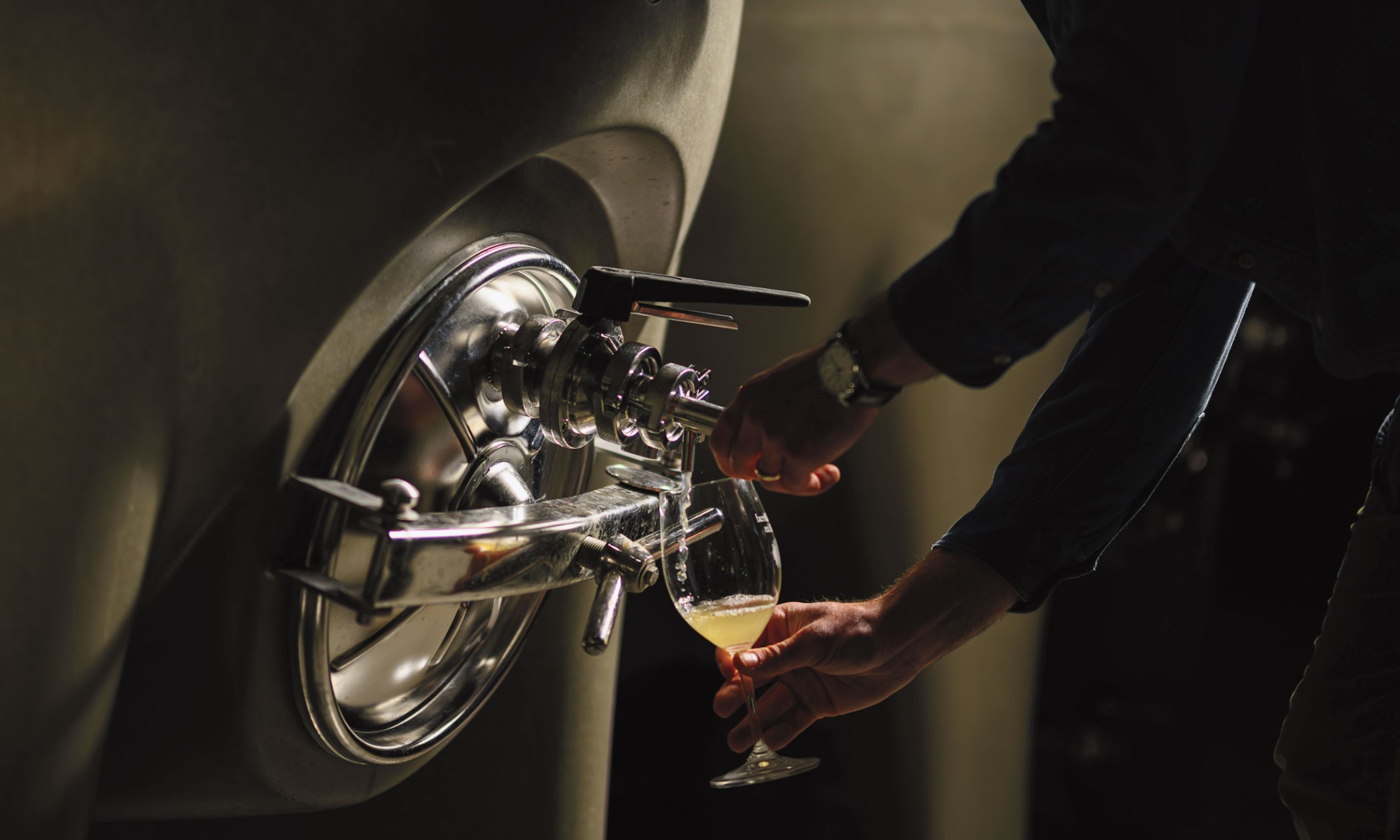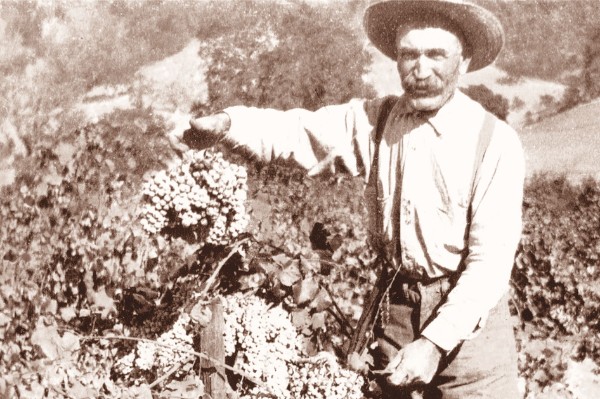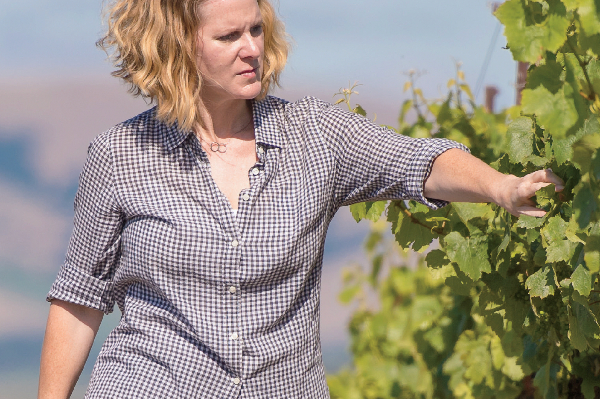When it comes to crafting wine in Napa Valley, there are scores of unseen people who contribute to a successful vintage. And behind every successful winemaker and winery, there’s a cellar master ensuring that every detail of the winemaker’s vision is realized.
To use a baseball analogy, a utility player is someone skilled at a little bit of everything. That’s an apt metaphor for a cellar master. They’re the ultimate winery insider, with their hands on everything from the intricacies of pressing fruit to the science of fermentation and from the alchemy of barrel aging to the timing of final bottling—along with keeping everyone safe.
Across Napa Valley, every cellar master’s job is different depending on the winery’s size and the wines they make. It’s an ideal job for people who like variety and growth since the cellar master does so many things and there are various ways to advance through the ranks.
Some Napa Valley cellar masters reveal what makes their role one of the most fulfilling jobs in the wine industry.
AN INSPIRING ROLE
James Sconzo, 33, majored in English, but after his first harvest, he dreamed of becoming a cellar master. “I fell in love with the pace and the nuances,” says Sconzo, cellar master at Cakebread Cellars in Rutherford. “I enjoy the fact that I can get my hands dirty and there’s hard work involved.”
Sconzo meets daily with the winemakers and then coordinates his cellar supervisors to ensure tasks get carried out by the year-round staff of 12. “The winemakers make stylistic decisions and I coordinate the workflow,” he says.
Sconzo also juggles hiring interns and seasonal staff, maintaining equipment and liaising with environmental agencies. But his favorite part of the role is keeping the team inspired. He does it by mixing jobs like cleaning and topping off barrels with executing more complex winemaking processes. Lately, he’s trained them on new resource-saving technology, including cleaning tanks with UV light instead of water and using high solids and crossflow filters instead of disposable pads to clarify the wine and remove bacteria.
“I try to help make sure that people are finding fulfillment and seeing a forward direction in the work we do here,” he says, whether they’re seeking a career or just a steady paycheck. He uses humor and storytelling about how the team made it through demanding seasons to keep everyone’s spirits up. “At the end of the day, there’s great satisfaction in pouring a glass of wine your hands went into making and knowing what we had to do to get that,” Sconzo says.
UNEXPECTED OPPORTUNITIES
Harvest can be a challenging time of the year for any winery. But it also can present unexpected opportunities to innovate. In 2022, Joel Guzman, the 38-year-old cellar master at Benessere, a boutique winery in St. Helena, recalls the Aglianico grapes were so heavy that they leaked a lot of juice on the way to the press. “I started collecting the juice and at the end of the day I had 15 gallons,” says Guzman. He fermented it into a dry rosé with notes of strawberry and cherry, then asked winemaker Matt Reid to taste it. Reid liked the wine so much that in 2023, they picked Aglianico early to specifically make another rosé.
Guzman works with a small team of two other people to bring in 10 different grapes, from Aglianico to Zinfandel. Sometimes a few varieties ripen at the same time and getting stressed out isn’t an option. “When you have five or six different grapes coming in, you may not have available tanks and you have to act right away,” Guzman says. “You ask your brain to work a little bit harder and you have to be patient and positive.”
He’s skilled at thinking ahead, having part of the team prepare tanks, while others weigh fruit and remove leaves and shriveled grapes to get the fruit ready for the next step. The team warms up each tank before adding yeast to start the fermentation process, then watches very carefully to make sure the temperature doesn’t get hot enough to kill the yeast. Guzman uses hot and cold valves to manually set tank temperatures to accommodate this high-wire act, an expertise born from years of experience.
SKILLS AND CURIOSITY
While being a cellar master is a great way to learn the winemaking business, for some it’s a culmination of a long career filled with many roles that required learning needed skills.
Carlos Torres, 46, the cellar master at Ehlers Estate, never planned to move to the U.S. He was happy in Guanajuato, Mexico, working in a pasta factory. But his brother-in-law found a job in Napa Valley and offered to help him find work here. Torres found he loved working in vineyards, pruning and tying vines. He eventually moved into the cellar, learning everything from doing pump-overs and cleaning tanks to racking barrels and bottling during his 17-year tenure.
When winemaker Adam Casto joined Ehlers in 2023, he saw that Torres had the skills and curiosity to be a successful cellar master.
The two men work closely as Torres expands his flavor vocabulary, technical skills and knowledge of fermentation and blending. He’s learning how to measure the progress of malolactic fermentation and the differences between the subtle flavors imparted by a Bel Air wine barrel versus one made by Seguin Moreau. “I love everything, but doing the blends with the winemaker is the culmination of the job and it’s really satisfying to see the winemaker’s point of view realized in a vintage,” Torres says.
He reflects on how different his life is compared to when he worked at the pasta factory. “Before I was told what to do and how to do it,” he says. “Now I’m learning a new way of working where I have to think about things and have an opinion.”
One of the best perks of his cellar master role is living on the Ehlers vineyard property with his family. The veranda of their white farmhouse is filled with flowers and the sounds of their pet finches and canaries. “It’s very beautiful and tranquil,” Torres says. “I’m very content to be here.”
HONING THE SENSES
While cellar masters are skilled in using instruments like a meter to measure wine pH or a hydrometer to determine density, they also need to use their sense of smell to know how wines are developing. Just a single off aroma can be a clue that a fermentation is stuck and an undesirable bacteria is taking over. “Your nose will tell you all of that,” says Addie Dearden, 26, who was the cellar master and production enologist at Crocker & Starr Wines in St. Helena until July 2024. A healthy fermentation smells vibrant and yeasty, while a troubled one reminds her of a pork and chive dumpling with soy sauce. She always follows up with a chemical analysis to confirm what she’s smelling.
After graduating from the Viticulture and Enology program at U.C. Davis, Dearden wanted to join a small winery where she could be part of the entire operation. At Crocker & Starr, she worked alongside winemaker Julie Robertson and founding winemaker and owner Pamela Starr (herself a former cellar master) to manage a wine’s progression from grape to barrel to bottle. Dearden also hired interns, received shipments and sat in on marketing and financial meetings.
“It’s like drinking out of a firehose but it was a good way to learn,” says Dearden. “Being an enologist and cellar master does set you on a good path for a winemaking role, so I made it my goal to be as well-rounded as possible.”




